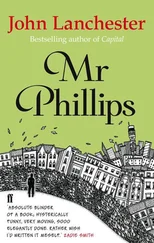Hifa’s mother lived in a cottage ten minutes’ walk from the train station. The little house stood in a row of similar properties just outside the coastal village. It was small and pretty on the outside, painted white, with a wooden gate, a trellis of flowers on the front wall and a small garden. The house would once have had a view of the sea, but that was now blocked by the Wall. The inside was decorated with African art and bright paintings by Hifa’s mother: she had been an art teacher but retired early and was now an artist. Her speciality was painting the spirit animals of her family and friends, and she said that she was looking forward to painting mine, once she had worked out what it was.
Hifa’s mother’s big news was about her domestic arrangements.
‘I know it’s terrible to have Help,’ she said, once we had got to the cottage and she had sent the Help to the shops in search of missing dinner ingredients. ‘If you had said when I was younger that I would have Help, not that it existed in those days, but had explained to me what it is and that I would one day be making use of it, I would not have believed you. Another human being at one’s beck and call, just by lifting a finger, simply provided to one, in effect one’s personal property … though of course they are technically the property of the state, there are all sorts of monitorings and safeguards, it isn’t at all like such arrangements in the benighted past, it is a form of providing welfare and shelter and refuge to the wretched of the world – but no, still, I would not have believed you. It is a falling away, a lessening of one’s own humanity. A decline in one’s own standards. But what could I do? I had you coming, I am not getting any younger, please don’t say anything polite’ – this was addressed to me, though the truth is I hadn’t been going to say anything in the first place – ‘we both know it’s true. The spirit is willing but the flesh is weak, and if we’re being completely honest the spirit isn’t always willing either. Age is a terrible thing, a terrible opponent. People of your time in life don’t understand this but you come to find it to be true, perhaps the only thing which is true for all humans everywhere, the terribleness of age. Our deepest piece of common humanity.’
I suddenly got it. Hifa’s mother was one of those people who like life to be all about them. With the Change, that is a harder belief to sustain; it takes much more effort to think that life is about you when the whole of human life has turned upside down, when everything has been irrevocably changed for everyone. You can do it, of course you can, because people can do anything with their minds and their sense of themselves, but it takes work and only certain kinds of unusually self-centred people can do it. They want to be the focus of all the drama and pity and all the stories. I could tell that she didn’t like it that younger people are universally agreed to have had a worse deal than her generation. I understood Hifa’s dread and found myself reaching for her hand. Hifa took mine, limply, reluctantly. I was about to find out why.
‘Ah – love. The love of a partner. The sweetest thing in life, to have it, to be possessed of it. The greatest of sadnesses to look back on, in later life, in adversity, the cruel twist that your greatest happinesses become your greatest pain.’ Then she leant forwards – the cottage rooms were small, so our sofa and her chair were close to each other, catty-corner – and took my and Hifa’s clasped hands in hers. ‘Enjoy it!’ she said. She got up and left the room to get her communicator to ask the Help where she was and why she was being so slow.
‘Holy fuck,’ I whispered to Hifa.
‘You get it now.’
‘Absolutely. Want me to do something? I can call Hughes, get him to call back, fake an emergency. Sudden summons back to the Wall. We can, I don’t know, go and stay in a B & B.’
‘Or we could just kill ourselves, that would work too,’ said Hifa. Then she squeezed my hand and let go. ‘This too shall pass. She’ll ease off from now, it’s worse when she’s nervous.’
That proved true. The Help came back from the shops and served an absolutely delicious cream tea, an old-school treat that I’d heard of but never had, with fresh scones (Hifa’s mother: ‘made under my direction’) and fresh clotted cream, and jam made by Hifa’s mother the previous autumn. I made the mistake of asking for the recipe, out of nothing but politeness, which gave her the opportunity to say: ‘The balance of sugar and sharpness has to be just right, as sweet as love, as bitter as loss.’ There would be these moments when Hifa’s mother suddenly went off on one. The rest of the time she was OK, and she could be very funny, especially about her neighbours. Also, as always, it was good to be away from the Wall and especially so to be with Hifa. We went for a walk down to what had been the seafront and was now a strange marooned parade of shops in the lee of the Wall, their facades oriented towards a promenade and a view which were no longer there. We did a lot of walking that weekend, as a device for getting out of the house.
‘How come she can afford Help?’
‘I haven’t asked but I can guess. Dad sends her money. He felt guilty about going off and leaving her – leaving us. He had to pay child support, but even when he didn’t have to any more, he still sent cheques.’
‘She told you that?’
Hifa gave me a look.
‘Of course not. He did.’
‘I thought you never saw him?’
‘I don’t. Hardly. Anyway, she’s canny with money, always has been. When she was working she saved.’
‘I feel a bit sorry for the Help. More sorry than usual, I mean.’
‘Yeah – I wouldn’t be at all surprised if she decided to swim for it.’
I laughed. Being with Hifa’s mother made me think about my parents; about the difference between me and them, so different from Hifa and her mother, and yet maybe not, at the same time. Who broke the world? They wouldn’t say that they did. And yet it broke on their watch.
Hifa was right, though: it did get easier. Her mother dialled it down a bit. That gave Hifa the chance to relax a little and as she did she told me about her childhood, the dad who was great when he was there but was prone to go away without warning, until one day he never came back; the charismatic, flaky, loving, difficult mother. The small-life country childhood which makes you need to get away so badly you can feel it in the roots of your hair. We wandered all over the town and the countryside around it. The paradox was that you couldn’t see the sea when you were close to it, because of the Wall, but if you went for a walk inland, and climbed up a bit, you could. So you went inland to see the sea. I was at that point of recovery when you feel annoyed by your own weakness; when you are bored, as a prelude to getting better. Bored with my physical condition, I mean. In other respects I was feeling better than ever. I was imagining a future off the Wall, once we were pregnant. We’d find work, take turns looking after the baby, maybe take turns going to college, and it would be onwards and upwards. There would be a new life, and we would be living a new life. It felt like too much to hope for, but not in a bad way, more the kind of thing you stop yourself thinking about for superstitious reasons, because if you let yourself imagine all the details, it’s less likely to happen. Breeders got good accommodation, so I wouldn’t have to go back to live with my parents and Hifa wouldn’t have to go back to live with hers.
By the fourth day of that week, my arm was out of its sling, and my shoulder, though it still hurt, hurt in a specific numb way which was unlike the access-all-areas pain I’d had when I was wounded. Unexpectedly catching a glimpse of myself in the mirror – there were lots of mirrors in the cottage – I thought, who’s that good-looking dude, then realised it was me, looking rested and well.
Читать дальше












